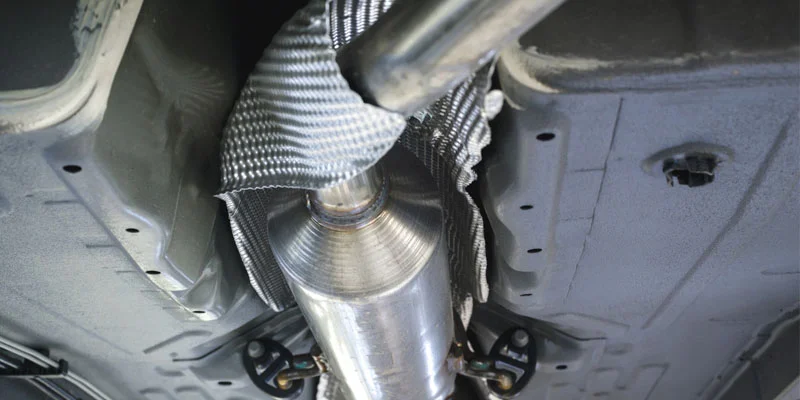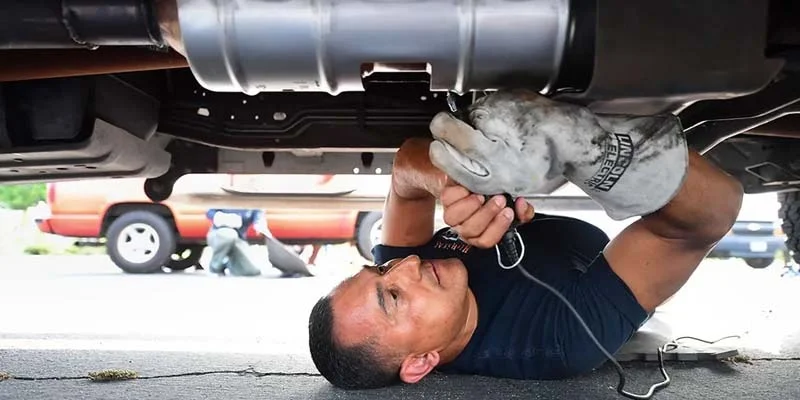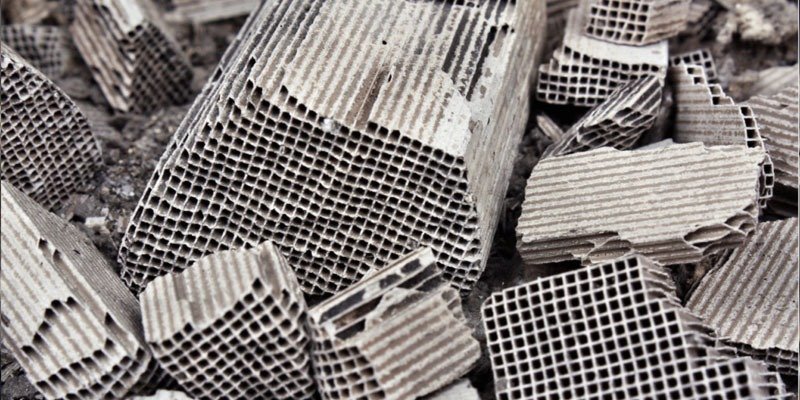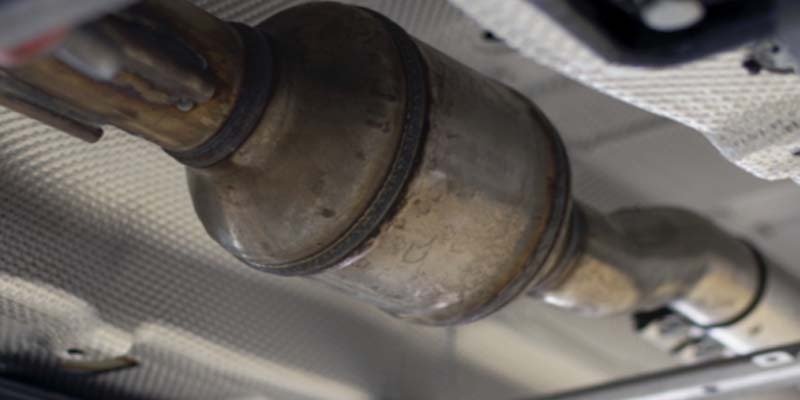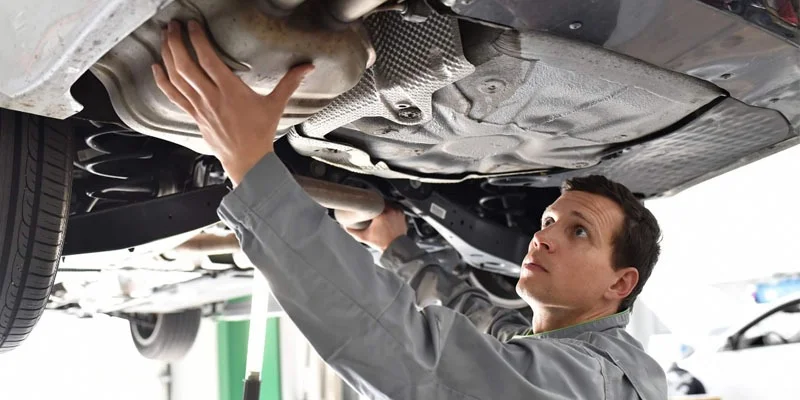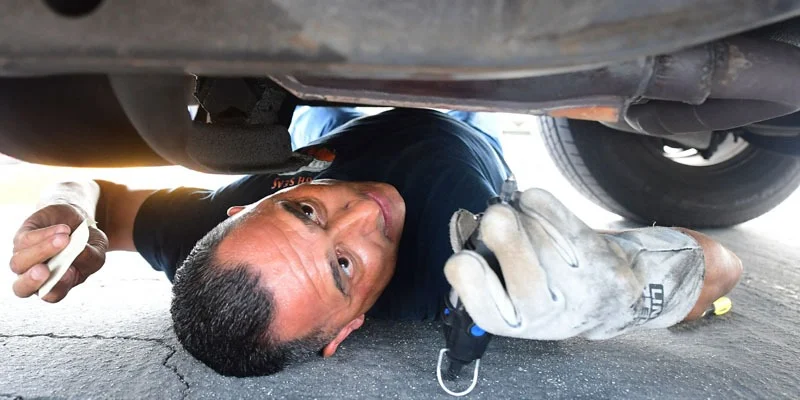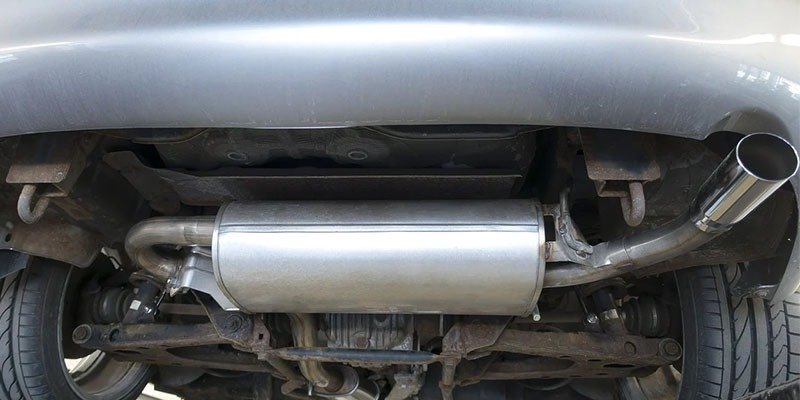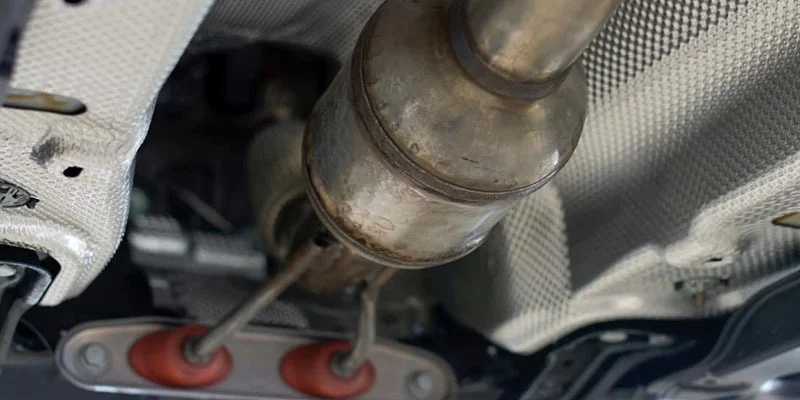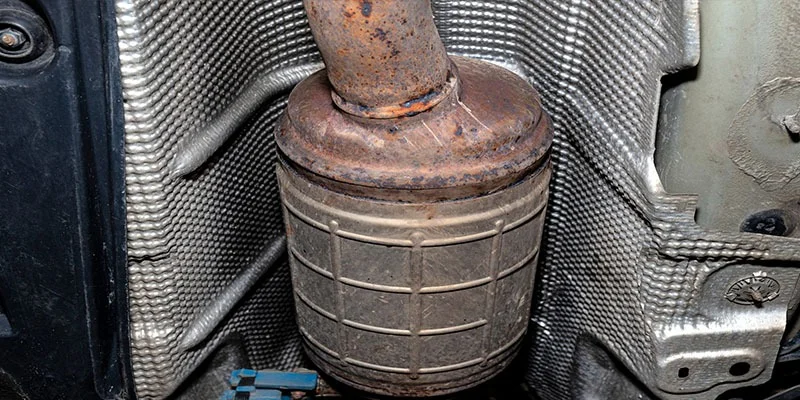Catalytic converters are an integral part of the automobile emission system. And, they are bound to fail or break too. Being expensive, one of the frequent questions that car owners ask is – How much to fix a catalytic converter?
The cost of repairing a catalytic converter can vary greatly depending on several factors. Understanding these factors can help you budget for the repair and make informed decisions about your vehicle.
What Factors Affect the Cost of Catalytic Converter Repair?
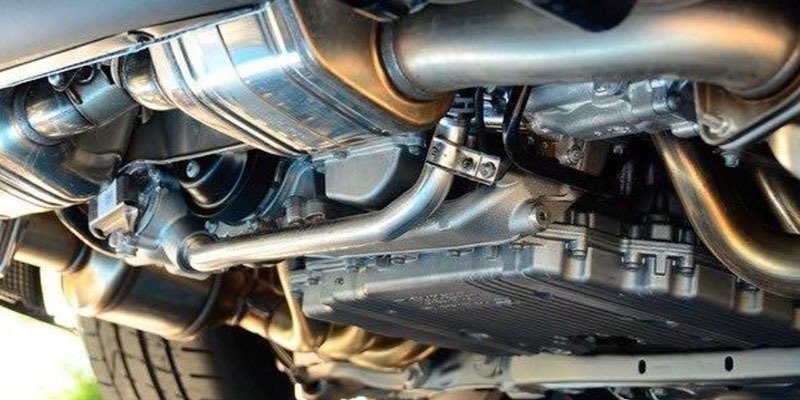
Here are some of the key factors that affect the cost of catalytic converter repair.
A. Type of vehicle
The make and model of your vehicle can play a significant role in the cost of catalytic converter repair. High-end luxury vehicles typically have more expensive catalytic converters, and their repair costs will be higher as a result. Additionally, certain types of vehicles may have more complex exhaust systems, which can also drive up the cost of repair.
B. Location of the Catalytic Converter
The location of the catalytic converter in your vehicle can also affect the cost of repair. A converter that is located close to the engine and easily accessible will likely be less expensive to repair than one that is located in a more difficult-to-reach area of the vehicle.
C. Type of Repair Needed
The extent of damage to the catalytic converter will dictate the type of repair needed. If the converter is simply clogged with debris, it may be possible to clean it, which would be a less expensive option. However, if the converter is damaged beyond repair, it may need to be completely replaced, which can be much more expensive.
D. Cost of Labour
Finally, the cost of labour will also impact the overall cost of catalytic converter repair. In general, labour costs tend to be higher in urban areas than in rural areas, and the cost of labor will also depend on the experience and skill level of the mechanic. Additionally, the cost of labor will vary based on whether you choose to have the repair done at a dealership or at an independent repair shop.
In nutshell, the cost of repairing a catalytic converter can vary greatly depending on the type of vehicle, the location of the converter, the type of repair needed, and the cost of labor. It is important to consider these factors when budgeting for the repair and making decisions about your vehicle.
Way to repair the catalytic converter repair
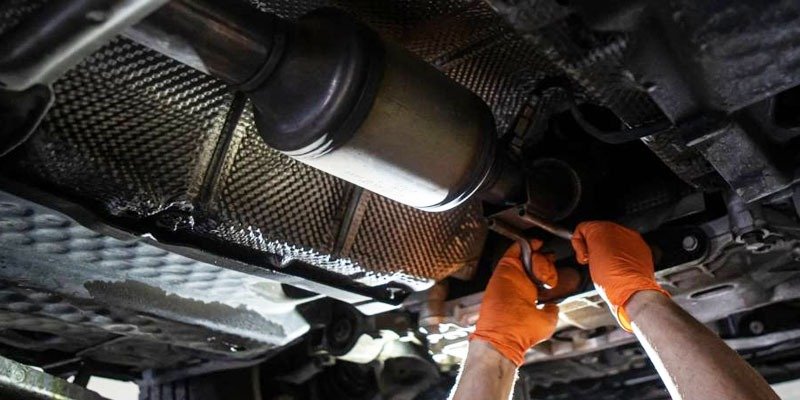
When a catalytic converter becomes damaged, there are several options for repairing it. Here are four common options for catalytic converter repair:
A. Cleaning the catalytic converter
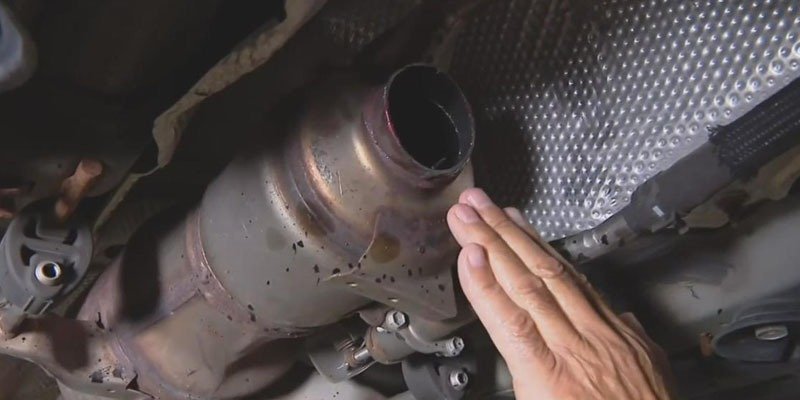
If the converter is simply clogged with debris, it may be possible to clean it. This option involves removing the converter and using specialized equipment to clean it. Cleaning the catalytic converter is typically less expensive than replacing it, but it may not always be effective in restoring the proper functioning of the converter.
B. Replacing the catalytic converter with a high-flow unit
If you are looking to improve the performance of your vehicle, you may consider replacing the catalytic converter with a high-flow unit. High-flow converters are designed to allow for greater flow of exhaust gases, which can improve acceleration and overall performance. This option is typically more expensive than replacing the entire catalytic converter, but it can provide performance benefits that are not available with a standard converter.
C. Replacing the entire catalytic converter
If the catalytic converter is damaged beyond repair, the entire unit will need to be replaced. This option is often necessary when the converter is clogged or broken, and it involves removing the old converter and installing a new one in its place. Replacing the entire catalytic converter is typically the most expensive option, but it is also the most effective way to restore the proper functioning of the converter.
D. Installing a bypass pipe
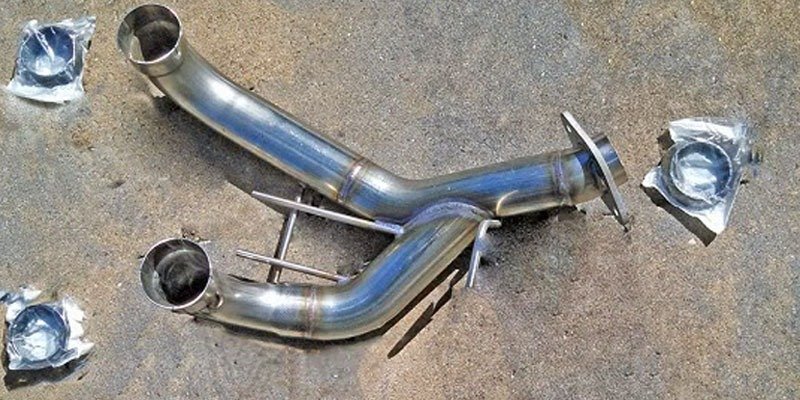
In some cases, it may be necessary to bypass the catalytic converter completely. This is often the case when the converter is beyond repair and also too expensive to replace. Installing a bypass pipe involves removing the catalytic converter and routing the exhaust gases around it. This option is typically the least expensive option, but it can have legal and environmental consequences due to increased emissions.
There are several options for repairing a damaged catalytic converter. The best option will depend on the extent of damage to the converter and your individual needs and preferences. It is important to consult with a professional mechanic to determine the best course of action for your specific situation.
DIY Vs Professional Repair
When it comes to repairing a catalytic converter, there is the option of doing it yourself (DIY) or taking it to a professional repair shop. Both options have their own advantages and disadvantages, and it is important to understand them in order to make an informed decision.
A. Advantages and disadvantages of DIY repair
- DIY repair can be an attractive option for those who are knowledgeable about cars and have access to the necessary tools and equipment.
- One advantage of DIY repair is that it can be significantly less expensive than taking it to a professional repair shop.
- Additionally, doing the repair yourself allows you to complete the work on your own schedule and at your own pace.
B. Disadvantages to DIY repair
- One of the main disadvantages is that if you are not experienced with automotive repair, you could end up causing more harm than good.
- Additionally, DIY repair can be time-consuming and physically demanding, and it may require special tools and equipment.
If DIY is not your cup of tea, seeking professional repair is the only way.
A. Advantages of Professional Repair
Taking your vehicle to a professional repair shop is a good option for those who are not experienced with the automotive repair or who do not have access to the necessary tools and equipment.
- One advantage of professional repair is that it is typically more efficient, as a trained mechanic can complete the repair more quickly and with greater precision than a DIY repair.
- Additionally, professional repair is often backed by a warranty, which gives you peace of mind that the repair will be done correctly.
B. Disadvantages of Professional Repair
- It can be more expensive than doing it yourself.
- Additionally, taking your vehicle to a professional repair shop may require scheduling an appointment and waiting for the repair to be completed.
Hence, there are advantages and disadvantages to both DIY and professional catalytic converter repair. The best option for you will depend on your level of automotive expertise, access to tools and equipment, and budget. Before deciding, it is important to consider all of the factors involved and to consult with a professional mechanic if necessary.
Conclusion
The cost of catalytic converter repair can be influenced by several factors including the type of vehicle, location of the catalytic converter, type of repair needed, and cost of labor. There are options available for catalytic converter repair including replacing the entire unit, cleaning the unit, replacing it with a high-flow unit, and installing a bypass pipe.
The decision between DIY or professional repair will depend on an individual’s level of expertise, access to tools and equipment, and budget. It is important to carefully consider all of these factors and consult with a professional mechanic if necessary, in order to make an informed decision and ensure the best possible outcome for your vehicle’s catalytic converter repair.

My Name is Christopher Angels, and I am a postgraduate in mechanical engineering. Cars have always excited me as a child, and soon I decided to dive into the world of cars by pursuing mechanical engineering. I also worked as a Mechanic for over 3 years to understand Cars’ anatomy and how each part contributes to its working.
My Name is Christopher Angels, and I am a postgraduate in mechanical engineering. Cars have always excited me as a child, and soon I decided to dive into the world of cars by pursuing mechanical engineering. I also worked as a Mechanic for over 3 years to understand Cars' anatomy and how each part contributes to its working.

